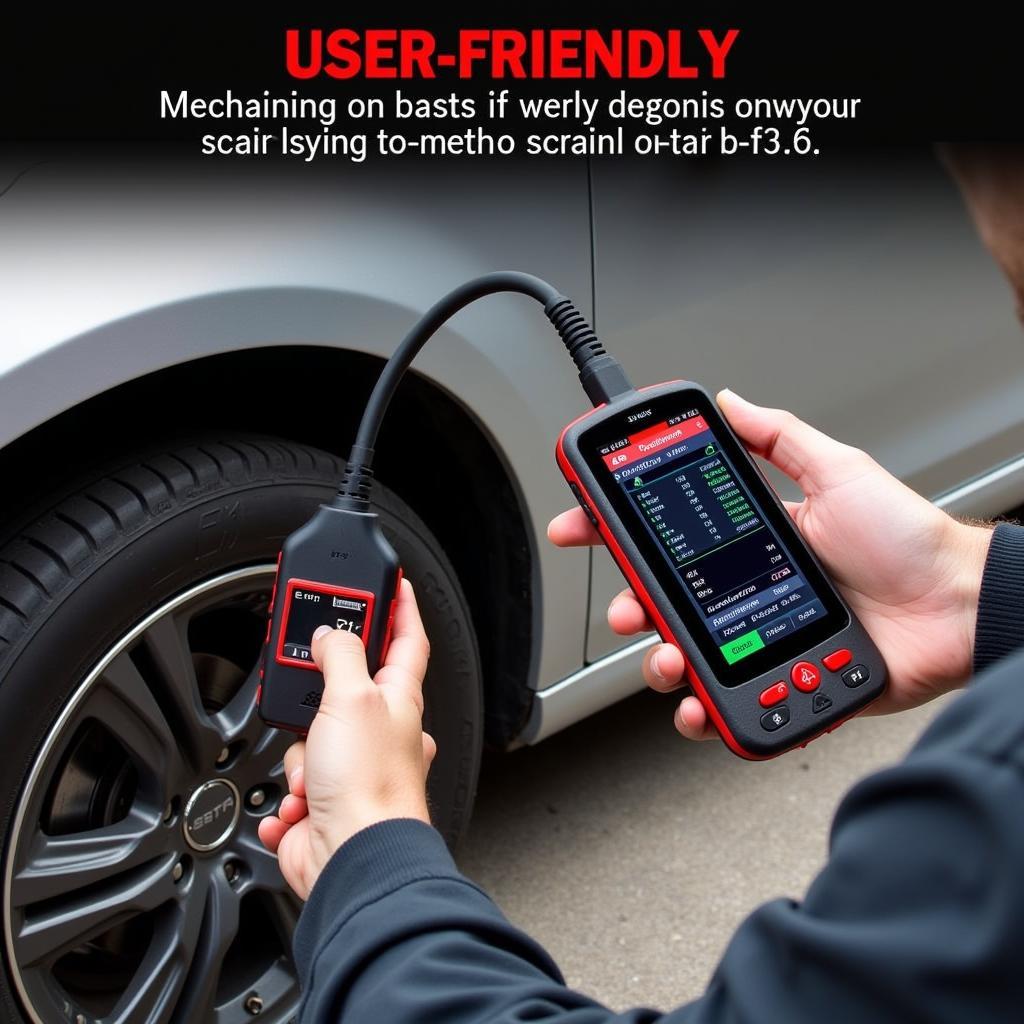David Foxwell Offshore Wind Journal is a niche but increasingly relevant search term. It suggests a growing interest in the intersection of automotive technology and the offshore wind industry, particularly from the perspective of maintenance and repair. This article delves into the challenges and opportunities presented by this intersection, providing insights for automotive technicians and workshop owners looking to adapt their expertise to the burgeoning offshore wind sector.
Bridging the Gap: Automotive Expertise in the Offshore Wind Industry
The skills and knowledge possessed by automotive technicians, particularly those specializing in diagnostics and repair using tools like those offered by Foxwell, are highly transferable to the offshore wind industry. Think about it: complex electrical systems, hydraulics, and mechanical components are the bread and butter of both sectors. The unique environment of offshore wind farms, however, presents a new set of challenges.
David Foxwell Offshore Wind: Specialized Diagnostics and Repair
While a standard David Foxwell scanner might be invaluable for diagnosing car trouble, offshore wind turbines require more specialized equipment. The harsh marine environment, coupled with the sheer scale of these turbines, demands robust diagnostic tools capable of handling complex control systems and vast amounts of data. The future likely holds more tailored solutions from companies like Foxwell, specifically designed for the offshore wind market. This presents a golden opportunity for technicians to upskill and specialize in this emerging field.
What skills are particularly valuable? Expertise in sensor technology, data analysis, and predictive maintenance are crucial. Understanding the intricate interplay of mechanical, electrical, and hydraulic systems within a turbine is also essential.
Challenges and Opportunities for Automotive Technicians in Offshore Wind
Working on an offshore wind farm is significantly different from a traditional automotive workshop. The remote locations, challenging weather conditions, and complex logistics require adaptability and resilience. However, these challenges come with attractive rewards. The offshore wind industry offers competitive salaries and the opportunity to be at the forefront of a rapidly expanding sector contributing to a sustainable future.
What about the practical aspects? Travel and accommodation are often provided by the employer, and specialized training is frequently offered to bridge the skills gap. This makes the transition from automotive to offshore wind more manageable for experienced technicians.
Preparing for a Career Shift: From Cars to Turbines
Interested in making the leap? Start by researching the specific requirements of the offshore wind industry in your region. Look for training programs that focus on wind turbine technology, safety protocols, and specialized diagnostic tools. Networking with professionals already working in the field can also provide invaluable insights.
“The automotive industry has fostered a generation of highly skilled technicians. Their expertise in diagnostics and repair is a huge asset to the offshore wind sector,” says Dr. Anya Sharma, a leading expert in renewable energy engineering.
The Future of Offshore Wind and the Automotive Connection
The demand for skilled technicians in the offshore wind industry is only expected to grow. As technology advances and turbines become even more sophisticated, the need for specialized diagnostic and repair expertise will become even more critical. Companies like Foxwell are likely to play a crucial role in developing the next generation of diagnostic tools for this market, building on their established expertise in the automotive sector.
“Investing in training and development for automotive technicians is a smart move for the offshore wind industry. It’s a win-win situation,” adds Mark Olsen, a veteran offshore wind technician. “Experienced automotive professionals bring a wealth of knowledge and practical skills that can be readily adapted to this exciting new field.”
Conclusion: David Foxwell Offshore Wind – A Promising Horizon
The connection between David Foxwell and the offshore wind sector represents the potential for cross-industry collaboration and innovation. As the offshore wind industry expands, the need for skilled technicians, particularly those with a background in automotive diagnostics and repair, will continue to rise. By embracing new technologies and acquiring specialized skills, automotive professionals can play a key role in this vital sector, contributing to a cleaner and more sustainable energy future. For any inquiries regarding diagnostic tools and solutions for the automotive and emerging energy sectors, connect with us at ScanToolUS. Call us at +1 (641) 206-8880 or visit our office at 1615 S Laramie Ave, Cicero, IL 60804, USA.
FAQ
- What type of training do I need to transition from automotive to offshore wind? Focus on wind turbine technology, safety protocols, and specialized diagnostic tools.
- Are there specific certifications required for working on offshore wind farms? Yes, various certifications related to safety and technical skills are typically required. Research the specific requirements in your region.
- Is experience with David Foxwell tools beneficial for working in offshore wind? While standard automotive tools might not be directly applicable, the diagnostic and troubleshooting skills developed using such tools are highly transferable.
- What are the typical working conditions on an offshore wind farm? Expect remote locations, varying weather conditions, and shift work.
- What are the career prospects in the offshore wind industry? The industry is rapidly growing, presenting excellent career opportunities for skilled technicians.
- How can I find job opportunities in the offshore wind sector? Specialized job boards, industry associations, and networking are good starting points.
- What are the salary expectations for offshore wind technicians? Salaries are generally competitive and often include benefits like travel and accommodation.

